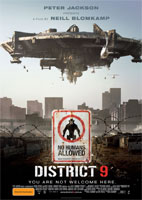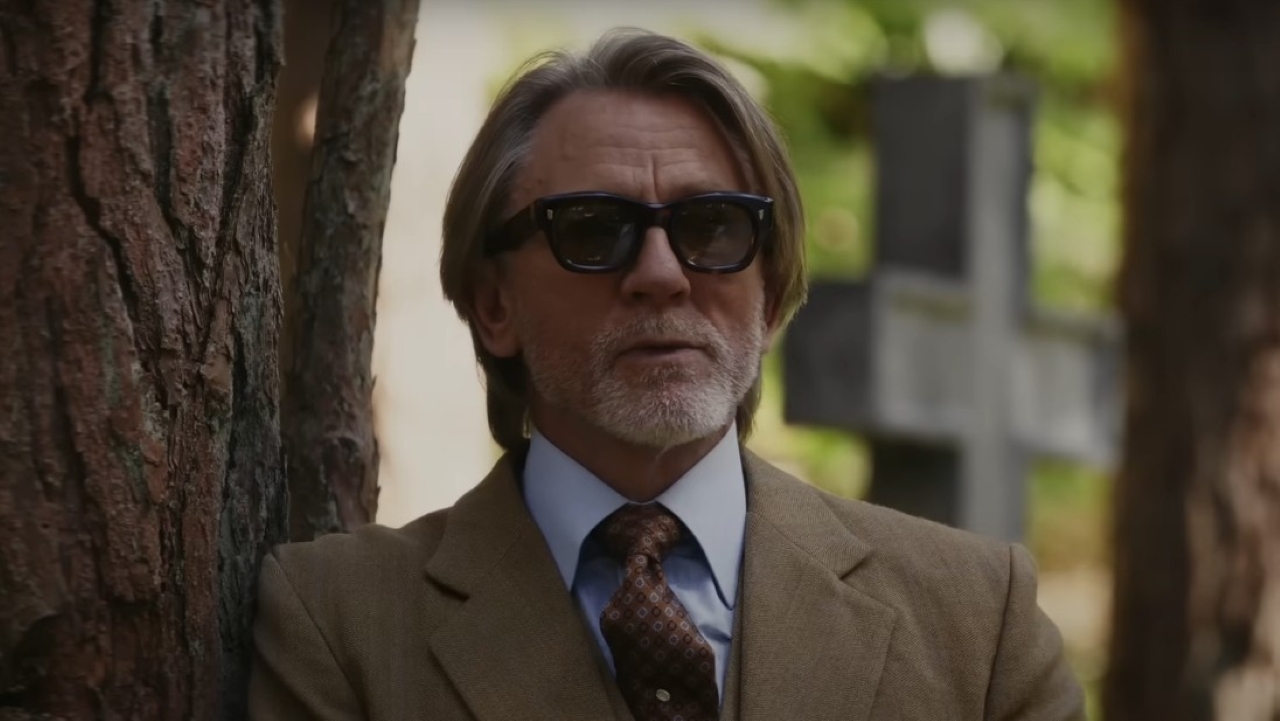For the second time this summer, a young, brand-new director has emerged from out of nowhere to present a vision of where sci-fi can go from here. It first happened with Moon, the elegant and tightly sealed thinkpiece from Duncan Jones that operated far more with the head than with the heart. Now, from the complete opposite side, comes District 9, Neill Blomkamp's visceral and thumping debut that, even if it doesn't have quite all its ideas in order, presents a fascinating and effective vision of the future, and of humanity itself.
Taking an obvious metaphor for apartheid as a mere jumping-off point, District 9 is set in Blomkamp's hometown of Johannesburg, South Africa, where 20 years earlier a spaceship appeared above the city and mysteriously stopped. Humans "rescued" the starving alien creatures inside it and rounded them up in an area called District 9, which quickly morphed into a slum where Nigerian gangsters prey off the aliens, given the derogatory but accurate nickname "prawns." The time has finally come for the government agency/weapons manufacturer MNU to relocate District 9 further from the city, and put in charge of the operation is bureaucratic dweeb Wikus Van De Merwe (Sharlto Copley), a guy who married the boss's daughter and has spent the rest of his life happily pushing pencils in a larger-than-average cubicle.
As he serves eviction notices to the prawns who live in the assorted shacks, Wikus takes delight in firebombing alien eggs and wielding his authority like a particularly obnoxious weapon. But when he comes afoul of a mysterious substance cooked up by an alien named, for some reason, Christopher Johnson, Wikus almost immediately begins a transformation into the world's first human-alien hybrid. After the government initially tries to slice him up for research and weapons development, Wikus escapes and takes refuge in the only hiding place he has left: District 9.
What follows is a fairly traditional search-and-rescue action movie plot, as Wikus and Christopher team up to recover the substance that transformed Wikus to begin with, for reasons better left discovered on your own. With a vivid imagination and a taste for gore, Blomkamp dreams up a whole arsenal of alien weapons that fry, blast and dismember human beings in all kinds of awesome ways. The film uses faux-documentary footage, news reports and security cameras combined with traditional photography to create its own kind of realism, giving the viewer the distinct feeling they are on the lam right next to Wikus. Blomkamp's handheld style is effective and never jerky; you always know where you are in the scene, which is especially critical when seeing more than one alien creature that looks essentially the same as the next one.
Created entirely out of CGI, the aliens are a true marvel, as Christopher and his little son are as real a character as E.T. or Wikus himself. It's a shame, then, that as we get to know the aliens and see subtitles for their language, that we don't learn more about them. Why did they show up here? Just how smart are they? What's their plan for getting back? It all gets shoved to the foreground in favor of Wikus' admittedly more interesting story, while a more experienced director might have been able to handle both stories. It technically doesn't matter that District 9 was so cheap, about $30 million, but it indicates an economy of both filmmaking and storytelling that, more than anything, makes Blomkamp a filmmaker worth watching. Even when it doesn't have all its ideas or the logic of its world in place, the narrative of Wikus' transformation from government stooge to freedom fighter is flawless. It helps that Copley turns in a stunning debut performance, ferocious and feral and constantly wonderful to watch.
District 9 isn't exactly sci-fi for the ages-- it's too unclear on what it has to say, and its story ranges too far within the meticulously created world without providing any real insight. But it's impressive not just as a debut, but as a new example of how to use original sci-fi as a mirror to our own world, and without $200 million budgets and space battles or even hobbits. Peter Jackson took the money he made making a faithful and beautiful adaptation, and has used it to fund something truly, remarkably original.
Your Daily Blend of Entertainment News
Staff Writer at CinemaBlend


